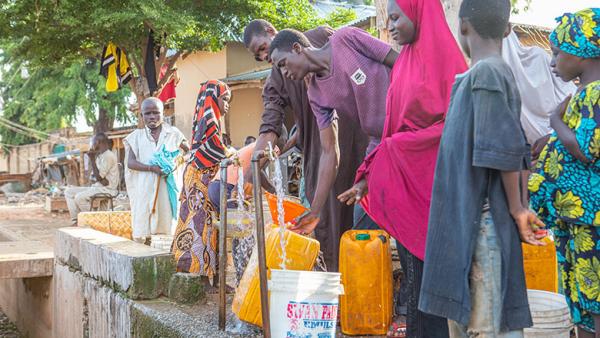World Bank Support For Nigeria WASH Services
SURWASH To Improve Access To Drinking Water For 6 Million, Sanitation for 1.4 Million
4 Jul 2021 by The Water Diplomat
ABUJA, Nigeria

The World Bank has approved a $700 Million USD credit line for the Nigeria Sustainable Urban and Rural Water Supply, Sanitation, and Hygiene programme (SURWASH) to improve access to drinking water for 6 million people and sanitation services for 1.4 million.
SURWASH is part of the government of Nigeria's National Action Plan (NAP) for the revitalization of the country's WASH sector, which will provide upgraded services to over 2,000 schools and health care facilities and help eradicate open defecation across 500 communities.
The credit comes through the World Bank's International Development Association (IDA).
A report published last year by Nigeria’s Federal Ministry of Water Resources and UNICEF emphasises the extent of the WASH crisis in Nigeria, revealing that one-third of the population is forced to drink contaminated water and 46 million people are still practicing open defecation.
Since the government of Nigeria declared a state of emergency in 2018, it has strengthened its commitment to improving WASH, particularly with the launch of the NAP – a 13-year action plan aimed at ensuring comprehensive access to sustainable WASH services across the country.
“Given that access to WASH is an important determinant of human capital outcomes, including early childhood survival, nutrition, health, learning, and women’s empowerment – all of which in turn affect labour productivity and efficiency; the programme’s centrality to the human capital agenda and its potential to influence key human capital outcomes cannot be over-emphasised,” said Shubham Chaudhuri, World Bank country director for Nigeria.
“Participating states will be able to improve access to safe water, sanitation and hygiene which will help to keep more girls in school, create employment, and reduce open defecation, while developing greater resilience to the impact of climate change, as well as conflicts between different land and water users,” he added.
Photo credit: Nigeria National Urban Water Sector Reform Programme (NUWSRP)
